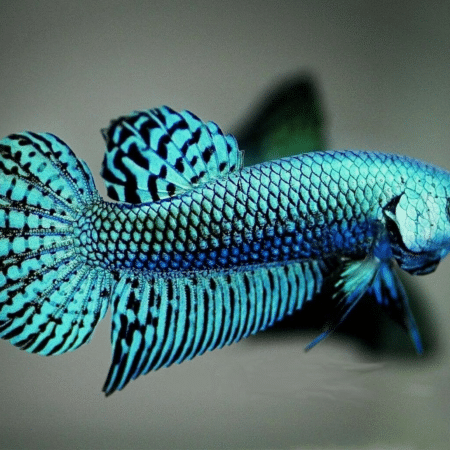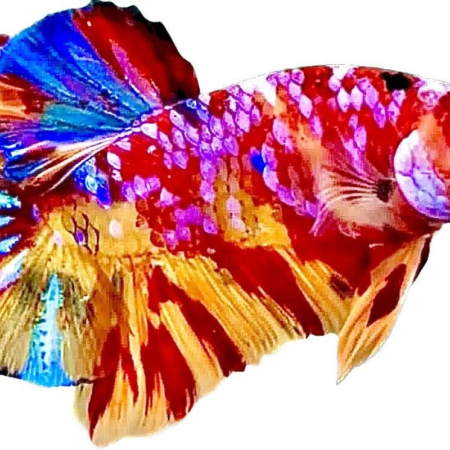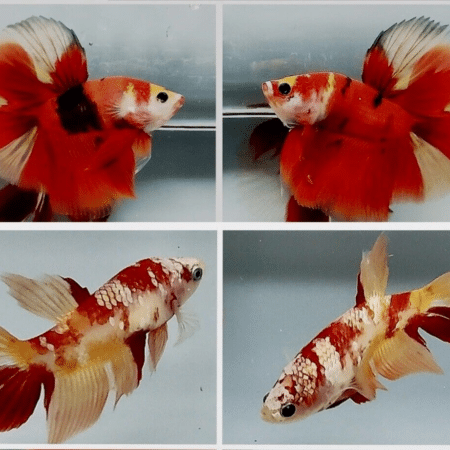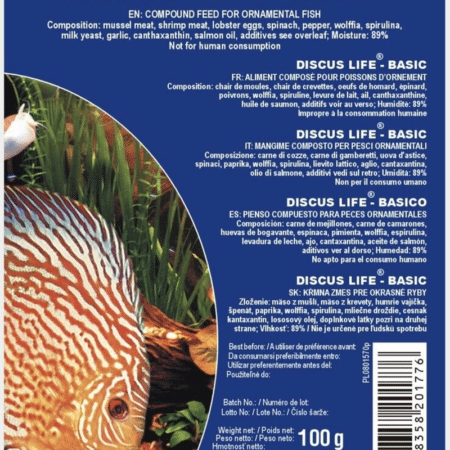LIVE White Worms PE-bags 90ml-pack.of 25pcs, Best Live Food for Betta Fish, Essential Nutrients to Support Active Swimming and Overall Wellbeing in Your Aquatic Friends
£85.49 Original price was: £85.49.£72.58Current price is: £72.58.
Welcome these beautiful live white worms in a 90ml pack of 25 pieces, perfect for enhancing the vibrant colors and health of your Betta fish. These nutritious treats support active swimming and overall wellbeing, ensuring your aquatic friends thrive in their environment.
994 in stock
Species Introduction
Welcome these beautiful creatures into your aquarium with the LIVE White Worms PE-bags. Each 90ml pack contains 25 pieces, providing essential nutrients to support the active swimming and overall wellbeing of your aquatic friends, particularly Betta fish.
Care Requirements Dashboard
| Optimal Living Conditions | |
|---|---|
| Water Temperature | 24-27°C (75-81°F) |
| pH Level | 6.5-7.5 |
| Water Hardness | 4-12 dKH |
| Minimum Tank Size | 80L (20 gal) |
| Salinity | Freshwater |
| Care Level | Beginner Friendly |
✓ Care Level: Moderate
| Parameter | Ideal Range |
|---|---|
| Tank Size | 5 gallons minimum |
| pH Level | 6.5 – 7.5 |
| Temperature | 75°F – 82°F |
| Hardness | 5 – 20 dGH |
Natural Behavior & Temperament
Betta fish, scientifically known as Betta splendens, are known for their vibrant personalities and territorial nature. In their natural habitat, they exhibit a range of behaviors, including swimming gracefully through vegetation and displaying their fins to attract mates. Understanding these natural behaviors is crucial for providing an environment that allows your Betta fish to express themselves fully.
Tank Setup Guide
Creating an ideal environment for your Betta fish involves careful consideration of tank setup. A minimum of 5 gallons is recommended to provide ample swimming space and maintain stable water parameters. Incorporate live plants like Java Fern or Anubias, which not only enhance the aesthetic appeal but also provide hiding spots and help maintain water quality.
Water Quality Management
Maintaining optimal water quality is paramount for the health of your Betta fish. The pH level should be kept between 6.5 and 7.5, as extreme fluctuations can lead to stress and illness. Regular water testing is essential to monitor ammonia, nitrite, and nitrate levels, as these can significantly impact fish health.
Feeding & Nutrition
Betta fish are carnivorous and require a diet rich in protein to thrive. A high-quality pellet specifically designed for Betta fish should form the basis of their diet, supplemented with live foods such as live white worms, which are an excellent source of essential nutrients.
Compatibility Guide
When considering tank mates for your Betta fish, it is crucial to choose species that are peaceful and can coexist without aggression. Suitable companions include certain species of tetras, rasboras, and snails. Avoid housing them with other male Bettas, as this can lead to severe aggression.
Health & Wellness
Maintaining the health and wellness of your Betta fish involves regular monitoring for signs of illness. Common issues include fin rot and ich, which can be identified by observing changes in behavior, appetite, and physical appearance.
Breeding Information
Breeding Betta fish requires careful planning and preparation. Males will build bubble nests as part of their courtship ritual, and it is essential to provide a separate breeding tank with appropriate conditions.
Acclimation Process
Acclimating your Betta fish to a new environment is a crucial step in ensuring their health and well-being. Proper acclimation is vital for reducing stress and ensuring a smooth transition to their new home.
Long-term Care
The long-term care of your Betta fish involves understanding their lifecycle and growth expectations. Regular monitoring of their health, water quality, and diet will contribute to a longer lifespan.
Natural Habitat Recreation
Recreating the natural habitat of Betta fish in your aquarium is essential for their well-being. This involves mimicking the shallow, warm waters of their native environment, complete with lush vegetation and hiding spots.
Seasonal Care Adjustments
Seasonal changes can affect the care requirements of your Betta fish. During warmer months, it is crucial to monitor water temperature closely.
Expert Tips
For those looking to provide exceptional care for their Betta fish, consider implementing some expert tips. Regularly change 25% of the water to maintain optimal conditions and reduce waste buildup.
Troubleshooting
In the event of common issues with your Betta fish, having a troubleshooting guide can be invaluable. If your Betta is exhibiting signs of stress, check the water parameters to ensure they are within the ideal range.
Scientific Background
The Betta fish belongs to the family Osphronemidae and is scientifically classified as Betta splendens. This species is well-studied in the aquarium trade.
Advanced Care Techniques
For those looking to take their Betta fish care to the next level, consider implementing advanced techniques such as creating a biotope aquarium that closely resembles their natural habitat.
Frequently Asked Questions
Q: What are the ideal tank requirements for Betta fish?
Betta fish thrive in a well-maintained aquarium that is at least 20 litres in volume, which provides them adequate swimming space. The tank should be equipped with a heater to maintain a stable temperature between 24-28°C. Additionally, a filter is essential to keep the water clean, but ensure that it does not create strong currents, as Betta fish prefer calm waters. Incorporating live plants and hiding spots will help mimic their natural habitat and reduce stress. Regular water changes (approximately 25% weekly) will further enhance their living conditions, promoting overall health and activity.
✓ Expert Tip
Consider using a gentle filter and adding plants to create a comfortable environment for your Betta.
Q: How often should I feed my Betta fish live white worms?
Betta fish should be fed live white worms once or twice a day, ensuring that the quantity is appropriate for their size and appetite. A good rule of thumb is to provide an amount that they can consume within 2-3 minutes. Overfeeding can lead to water quality issues and health problems, so it is crucial to monitor their feeding habits. If you are introducing live food for the first time, start with smaller amounts to observe how they respond. Adjust their diet based on their activity level and health to maintain optimal wellbeing.
✓ Expert Tip
Regularly observe your Betta’s eating habits to ensure they are receiving the right amount of food.
Q: What are the signs of a healthy Betta fish?
A healthy Betta fish exhibits vibrant colours, clear eyes, and active swimming behaviour. Their fins should be fully extended and without tears or fraying. Additionally, healthy Betta fish will respond to feeding and display curiosity towards their surroundings. Regular observation of their behaviour is essential; lethargy, loss of appetite, or unusual hiding can indicate stress or illness. Maintaining optimal water parameters and a clean environment is vital for their health, so ensure you regularly test the water for ammonia, nitrite, nitrate, and pH levels.
✓ Expert Tip
Conduct routine health checks to catch any potential issues early.
Q: How do I acclimatise my Betta fish to a new aquarium?
Acclimatisation is crucial for reducing stress in Betta fish when introduced to a new environment. Begin by floating the sealed bag containing your Betta in the aquarium for about 15-20 minutes to equalise the temperature. After this, gradually introduce aquarium water into the bag, approximately 1/4 cup every 5-10 minutes, for about an hour. This method helps the fish adjust to the new water conditions. Once acclimatised, gently release your Betta into the tank using a net to avoid transferring any water from the bag, which may contain harmful substances.
✓ Expert Tip
Always ensure the water parameters match between the bag and the aquarium.
Q: What are the best tank mates for Betta fish?
When selecting tank mates for Betta fish, it is essential to choose species that are calm and non-aggressive. Suitable companions include Corydoras catfish, certain species of rasboras, and snails. Avoid keeping Betta fish with fin-nipping species like tetras or aggressive fish such as cichlids. It is also advisable to keep only one male Betta in a tank to prevent territorial disputes. Ensure that the tank is spacious enough to provide hiding spots and territories for all inhabitants, which helps to reduce stress and aggression.
✓ Expert Tip
Always monitor behaviour when introducing new tank mates to ensure compatibility.
Q: What temperature should I maintain for my Betta fish?
Betta fish thrive in warmer waters, and it is crucial to maintain a temperature between 24°C to 28°C. Fluctuations outside this range can lead to stress and health issues. A reliable aquarium heater is recommended to keep the water temperature stable, and using a thermometer will help monitor the conditions accurately. It is also essential to avoid placing the aquarium in drafty areas or direct sunlight, as this can cause temperature spikes or drops. Regular checks will ensure your Betta enjoys a comfortable environment.
✓ Expert Tip
Utilise a heater with a thermostat for consistent temperature control.
Q: How long do Betta fish typically live in captivity?
In captivity, Betta fish typically have a lifespan of 3 to 5 years, although with optimal care, some have been known to live even longer. Factors that influence their longevity include water quality, diet, and overall tank conditions. Maintaining clean water, providing a balanced diet rich in nutrients, and minimising stress through proper tank mates and environment will greatly enhance their chances of living a longer life. Regular health checks and prompt attention to any issues will also contribute to their wellbeing.
✓ Expert Tip
Invest in good quality food to support their health and longevity.
Q: How can I prevent common diseases in Betta fish?
Preventing diseases in Betta fish primarily involves maintaining high water quality and a stable environment. Regular water changes, testing parameters, and ensuring a clean tank are essential. Avoid overfeeding, as uneaten food can decay and pollute the water. Quarantining new fish before introducing them to the main tank can prevent the spread of diseases. Additionally, observing your Betta for any unusual behaviours or physical signs can help catch issues early. Providing a varied diet rich in nutrients will also strengthen their immune system.
✓ Expert Tip
Regularly check for signs of stress or illness to address issues promptly.
Q: What type of substrate is most suitable for Betta fish?
Betta fish prefer substrates that are soft and smooth to prevent injury to their delicate fins. Fine gravel or sand are excellent choices, as they allow for easy cleaning and do not trap debris. Additionally, a substrate that supports live plants will enhance the tank environment and provide hiding spots for your Betta. When setting up the substrate, aim for a depth of at least 2.5 cm to accommodate plant roots and ensure a natural look. Regular cleaning is essential to maintain water quality and prevent algae growth.
✓ Expert Tip
Consider using a substrate that promotes beneficial bacteria for improved water quality.
Q: How do I support breeding in Betta fish?
To successfully breed Betta fish, provide a separate breeding tank of at least 20 litres with a gentle filter and heater. Create a conducive environment by adding floating plants to provide cover for the fry. Ensure both the male and female are in good health and well-fed prior to breeding. The male will build a bubble nest, which is essential for the fry. Once the female lays eggs, remove her after spawning to prevent aggression. Feed the fry with infusoria or finely crushed live food until they are large enough for regular Betta food.
✓ Expert Tip
Monitor the breeding pair closely to ensure a smooth process.












Emily Carter (verified owner) –
I recently purchased the live white worms in a 90ml pack for my betta fish, and I couldn’t be happier with the results! Within just a week, my betta, named Bubbles, has shown a noticeable increase in energy and vibrancy. He absolutely loves these worms and eagerly awaits feeding time, which is such a joy to see! The worms come in a convenient PE bag, keeping them fresh and alive, which is essential for fish welfare. Compared to other dried fish foods I’ve tried, these live worms are a game changer. They’re not only more nutritious but also help stimulate Bubbles’ natural hunting instincts. The only minor concern is that they do require careful handling to ensure they remain healthy and lively, but that’s a small price to pay for such an enthusiastic feeding response. I highly recommend this product for anyone with bettas or other small fish who need a protein boost in their diet. Trust me, your fish will thank you! Plus, shipping was super fast, and they arrived in perfect condition.
Lisa Green (verified owner) –
As a caring fish parent, I’m always on the lookout for high-quality live food for my betta fish, and these live white worms have exceeded my expectations! I started using them about two weeks ago, and the difference in my betta’s energy levels is remarkable. He swims actively and seems genuinely happier during feeding time. Each pack contains 25 pieces, making it easy to portion out, and the worms are vibrant and healthy, which reassures me about their quality.
I’ve tried other live foods before, like brine shrimp, but my betta definitely prefers these worms. They are easier for him to catch and consume, leading to less waste in the tank. One small concern is that they can be a bit slippery, so be sure to feed them directly in a way that prevents them from slipping through the water too quickly. Overall, these live white worms are an essential part of my betta’s diet, and I highly recommend them to any fellow aquarists looking to enhance their fish’s wellbeing. I will definitely purchase more in the future!